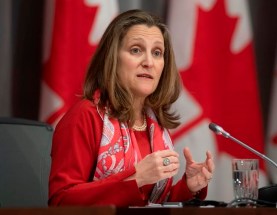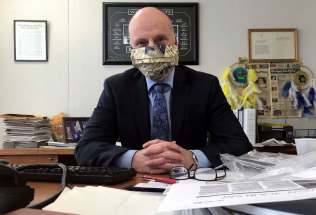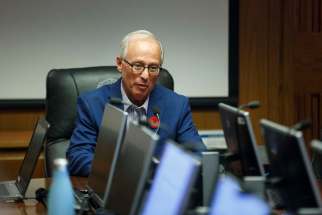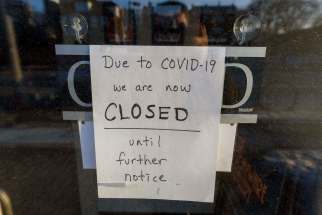Virus threatens to strike out Goldeyes’ season Katz, other American Association owners desperately hoping to play ball at some point
Read this article for free:
or
Already have an account? Log in here »
To continue reading, please subscribe:
Monthly Digital Subscription
$0 for the first 4 weeks*
- Enjoy unlimited reading on winnipegfreepress.com
- Read the E-Edition, our digital replica newspaper
- Access News Break, our award-winning app
- Play interactive puzzles
*No charge for 4 weeks then price increases to the regular rate of $19.00 plus GST every four weeks. Offer available to new and qualified returning subscribers only. Cancel any time.
Monthly Digital Subscription
$4.75/week*
- Enjoy unlimited reading on winnipegfreepress.com
- Read the E-Edition, our digital replica newspaper
- Access News Break, our award-winning app
- Play interactive puzzles
*Billed as $19 plus GST every four weeks. Cancel any time.
To continue reading, please subscribe:
Add Free Press access to your Brandon Sun subscription for only an additional
$1 for the first 4 weeks*
*Your next subscription payment will increase by $1.00 and you will be charged $16.99 plus GST for four weeks. After four weeks, your payment will increase to $23.99 plus GST every four weeks.
Read unlimited articles for free today:
or
Already have an account? Log in here »
Hey there, time traveller!
This article was published 08/04/2020 (2075 days ago), so information in it may no longer be current.
There will be no taking you out to the ball game, no root-root-rooting for the home team, at least not anytime soon. Like all sports organizations around the globe right now, the Winnipeg Goldeyes are closed for business.
A bummer for local fans, and especially bad news for approximately 15 full-time staff who were laid off last week, along with an estimated 300 Winnipeggers, many of them teenagers and young adults, who won’t be starting their expected part-time jobs anytime soon, if at all.
It could also have a devastating impact on independent baseball in general, where the line between staying afloat and financial ruin was already razor-thin in plenty of markets. In the 12-team American Association, for example, it might be the final nail in the coffin for a few fledgling franchises.
“It would mean almost no revenue for almost an entire year. Whereas expenses keep going. You try to limit them of course, and there’s plans to defer some of them, but you still have to pay,” Goldeyes owner Sam Katz said this week in a wide-ranging interview.
“I have been trying to figure that out myself for the Goldeyes, and what that would mean in the end.”
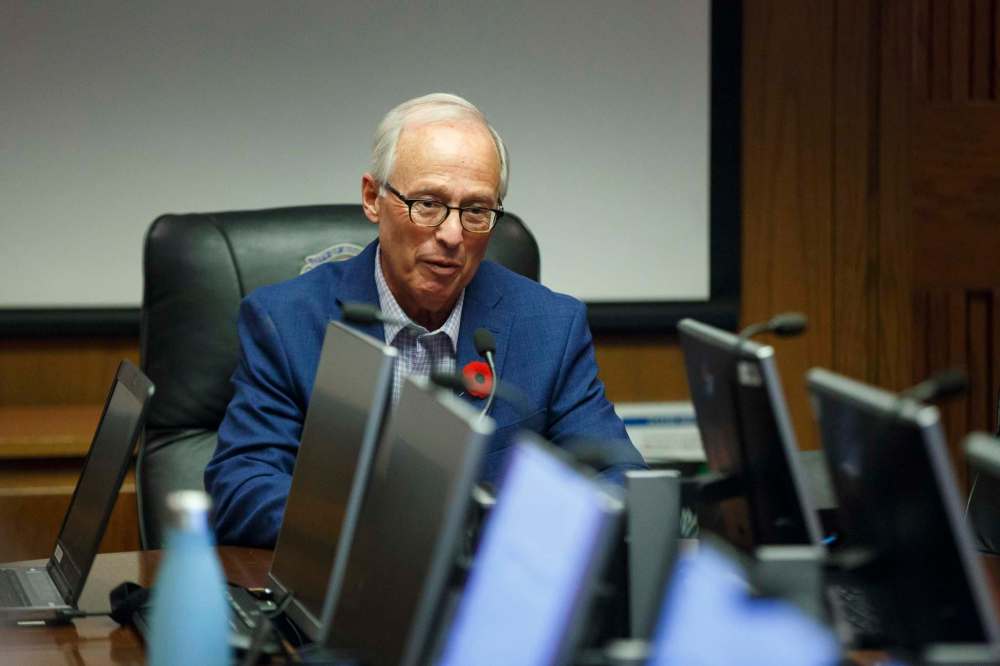
The short-term answers are much easier to figure out. Spring training, set for early May, will not happen. The 100-game season’s opener, May 19 in Texas, is off. Same with the home opener, May 26 at Shaw Park. Beyond that?
“It’s very fluid and things are changing, but nobody has a crystal ball to see into the future. We all agree that the priority is to keep everyone safe and healthy. So when I’m looking at it from a baseball side of it, whatever mandate comes down from Premier (Brian) Pallister or Prime Minister (Justin) Trudeau or, for my colleagues in the U.S., the governor or President (Donald) Trump, that’s No. 1 and we all abide by that,” said Katz.
There are multiple weekly conference calls within the league among team owners, commissioner Joshua Schaub and the executive committee, on which Katz sits. And they’ve already drawn up a best-case type of contingency plan, one that would see a shortened season begin around July 1 and run through September, likely with about 75 to 80 games and playoffs.
“We’re not going to be playing in empty stadiums. That’s not going to happen.”
– Sam Katz
That’s all based on the potential that many cities will hit hit their coronavirus peaks in the next couple weeks. Once that occurs, the hope is a clearer return to play path might emerge.
“I do believe within the next three weeks we’ll have a much better handle on whether or not there’s a possibility of the season starting later or, ‘You know what, you guys? Here’s the reality, and there’s not going to be a season,'” said Katz. “Once you pass a July 1 (start date), it becomes less and less of a possibility of starting a season.”
Katz is clear about one thing — fans have to be part of the equation. This is a gate-driven league, one that needs folks buying tickets, paying for parking and filling their face with peanuts and Cracker Jack and other concessions. Without that revenue, there is no way forward.
“We’re not going to be playing in empty stadiums. That’s not going to happen,” said Katz.
Unlike some of the big-money sports, such as Major League Baseball, which is talking about creating an isolated community in Arizona to begin playing without spectators as early as next month, there’s no lucrative television contract in the American Association to make such a situation viable.
It’s hard to envision a scenario where thousands of strangers are allowed to gather in close proximity by the beginning of July, so the odds of this coming to fruition might be somewhere between witnessing a perfect game or an immaculate inning.
League attendance averaged just over 3,000 fans per game last season, a total of nearly 1.8 million spectators for the 12 clubs combined. The Goldeyes were second overall, with 195,787 fans for an average of 4,079. Teams in four cities — Cleburne, Texas; Grande Prairie Texas; Milwaukee; and Sioux City, Iowa — drew between 1,000 and 1,500 per game, suggesting there was plenty of social distancing already happening at their parks; their already-perilous bottom lines might not be able to survive a lost season.
“I feel absolutely terrible (for those laid off), but I never ever dreamed we’d be having a conversation on this topic. My mind goes all over the place, but never, ever to this scenario.”
You’d think the Fish, one of the more successful franchises in independent baseball, would be able to weather the storm, but Katz says these are unchartered waters. And even when baseball eventually returns, he’s bracing for a significant hit at the box office.
“I think it will start off as, I don’t want to use the word trickle, but it won’t be the kind of crowds you’d expect, for obvious reasons,” said Katz, who has already had staff draft an extensive COVID-19 safety plan for Shaw Park that they will implement when it reopens.
With a salary cap of $125,000 per team, players aren’t exactly getting rich in the American Association. This is more about having a place to showcase their skills with the hopes of getting picked up by a MLB organization and begin working their way up their depth chart. Many players have off-season jobs, which Katz said could become their only source of income now, provided they still even exist.
But a lost season will turn those big-league dreams into a nightmare for many athletes.
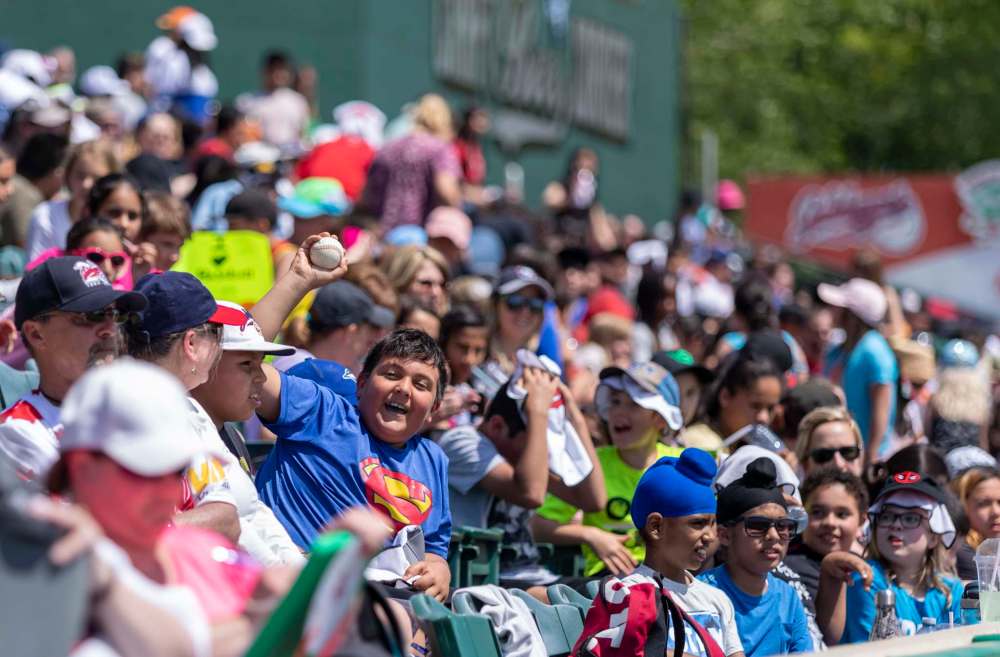
For now, Katz has kept five of the approximate 20 full-time employees on the payroll, but even that could be further reduced.
“I feel absolutely terrible (for those laid off), but I never ever dreamed we’d be having a conversation on this topic. My mind goes all over the place, but never, ever to this scenario,” he said. “We have a skeleton staff. As you can appreciate, we can’t do sales. I wouldn’t allow any individual to call any business or corporate sponsorship right now, so that’s totally off the table.”
And so they wait, and hope, for brighter days ahead and a return to some kind of normal, whatever that may look like.
“The bottom line is we have to maintain some optimism and believe we’re going to be back, but the safety of our fans and our players and our staff is No. 1. If and when it becomes safe and we can put together something of a schedule that makes sense, then we do it, but only then,” Katz said.
“Because someone stole my crystal ball, I can’t tell you when that’s going to happen.”
mike.mcintyre@freepress.mb.ca
Twitter: @mikemcintyrewpg

Mike McIntyre grew up wanting to be a professional wrestler. But when that dream fizzled, he put all his brawn into becoming a professional writer.
Our newsroom depends on a growing audience of readers to power our journalism. If you are not a paid reader, please consider becoming a subscriber.
Our newsroom depends on its audience of readers to power our journalism. Thank you for your support.
History
Updated on Wednesday, April 8, 2020 8:22 PM CDT: Updates photos


